XTB Hack 2025: Major Security Breach Exposes Client Accounts
Abstract:XTB suffers a major hack in 2025, with hackers draining client accounts and sparking urgent security upgrades. Learn how the breach unfolded and what’s next.
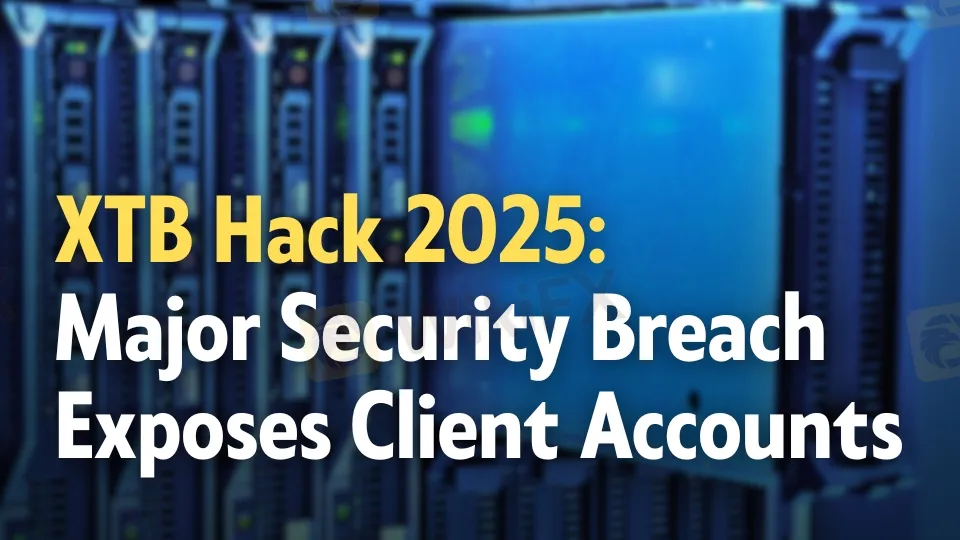
Overview of the XTB Hack 2025
In 2025, Polish online broker XTB became the center of attention after a major security breach, now widely referred to as the XTB hack 2025. The incident resulted in a significant client account security breach, with one investor reporting a loss of roughly 150,000 Polish zloty (about $38,000). This event sent shockwaves through Central Europes financial sector and raised pressing concerns about how hackers were able to steal from XTB accounts and what measures are being implemented to safeguard clients.
How the Breach Occurred
The breach surfaced when a long-standing XTB client publicly disclosed substantial losses. According to the client, hackers executed thousands of rapid trades involving obscure, low-liquidity financial instruments. Rather than attempting direct withdrawals—which XTB restricts to verified bank accounts—the attackers manipulated the market by performing simultaneous buy-sell transactions. This strategy systematically depleted the victims account, while a separate account on the other side of each trade profited.

Key Tactics Used by Hackers
- Rapid-fire trading: Attackers placed thousands of trades within a short period, targeting illiquid assets.
- Market manipulation: The hackers exploited the market by executing matching buy and sell orders, draining one account while enriching another.
- Bypassing withdrawal restrictions: Since XTB only allows withdrawals to verified bank accounts, the attackers avoided direct cash-outs and instead used trading as their extraction method.
Social Media Reaction and Wider Impact
News of the XTB client account security breach spread quickly on social media, with other traders across Central Europe sharing similar experiences. Many reported that their complaints to XTB were dismissed, as the company pointed to user responsibility for password management. A critical vulnerability at the time was the lack of mandatory two-factor authentication (2FA); only about 10% of XTB customers had enabled this extra layer of security.
Market Consequences
The fallout from the XTB hack in 2025 was swift. XTBs stock price dropped more than 6% in a single day following the incident—the steepest decline of the year—before partially recovering. This volatility highlighted shaken investor confidence and underscored the urgent need for improved security practices.
XTBs Response: Security Overhaul
In response to the breach and mounting criticism, XTB announced a comprehensive upgrade to its security protocols:
- Mandatory Two-Factor Authentication (2FA): XTB will require all users to enable 2FA, with automatic activation for existing accounts and mandatory setup for all new accounts by the fourth quarter of 2025.
- Switch to TOTP: The new system will use Time-based One-Time Passwords (TOTP) generated by apps like Google Authenticator, moving away from SMS-based codes.
- Enhanced Monitoring: The broker is introducing real-time monitoring for suspicious trading activities and instant alerts for logins from unfamiliar devices or locations.
Industry Perspective
Experts have stressed that both financial brokers and their clients must share responsibility for cybersecurity. With cyber threats on the rise—Poland alone saw a 29% increase in security incidents in 2024—the XTB hack in 2025 stands as a clear warning: robust, mandatory two-factor authentication is now essential to protect client assets.
Want to see how XTB is strengthening account protection after the 2025 hack? Visit their broker's page: https://www.wikifx.com/en/dealer/1561892500.html

Read more
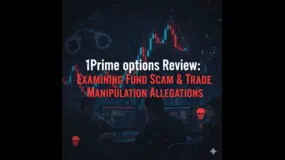
1Prime options Review: Examining Fund Scam & Trade Manipulation Allegations
Did you find trading with 1Prime options fraudulent? Were your funds scammed while trading on the broker’s platform? Did you witness unfair spreads and non-transparent fees on the platform? Was your forex trading account blocked by the broker despite successful verification? These are some issues that make the traders’ experience not-so memorable. In this 1Prime options review article, we have investigated the broker in light of several complaints. Keep reading!
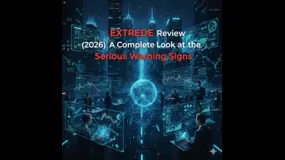
EXTREDE Review (2026): A Complete Look at the Serious Warning Signs
This EXTREDE Review serves an important purpose: to examine the big differences between what the broker advertises and what we can actually prove. For any trader thinking about using this platform, the main question is about safety and whether it's legitimate. We will give you a clear answer right away. Our independent research, backed up by third-party information, shows that EXTREDE operates without proper regulation, creating a high-risk situation for all investors. The main focus of this investigation is the absolutely important need to check a broker's claims before investing. A broker's website is a marketing tool; it cannot replace doing your own research. The information that EXTREDE presents contains contradictions that every potential user must know about. A quick way to see these warnings gathered together is by checking the broker's live profile on verification platforms. For example, the EXTREDE page on WikiFX brings together regulatory status, user feedback and expert ri
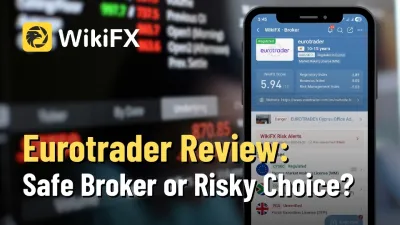
Eurotrader Review: Safe Broker or Risky Choice?
Eurotrader is regulated by CYSEC & FSCA, offering MT4/5 with forex and CFDs. Safe broker or risky choice? Review facts and decide now via the WikiFX App.
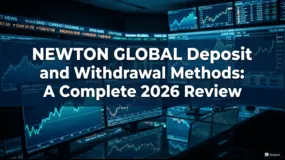
NEWTON GLOBAL Deposit and Withdrawal Methods: A Complete 2026 Review
When traders look at a broker, they care most about how well its payment system works and what options it offers. You are probably looking for information about NEWTON GLOBAL deposit and withdrawal methods to see if they work for you. The broker says it has many modern payment options and promises fast processing times. However, a good review needs to look at more than just what it advertises. We need to check how safe your capital really is with this broker. One important factor that affects the safety of every transaction is whether the broker is properly regulated. Our research shows that NEWTON GLOBAL does not have any valid financial regulation from a trusted authority. This fact, along with a very low trust score, completely changes the situation. The question changes from "How can I withdraw?" to "Is it safe to invest here?" This background information is essential for protecting your capital.
WikiFX Broker
Latest News
FxPro Broker Analysis Report
ACY SECURITIES Regulatory Status: A Complete Guide to Licenses, Warnings and Trader Issues
FBS Forex Scam Alert: High Complaint Ratio
ThinkMarkets Scam Alert: 83/93 Negative Cases Exposed
Exchange Rate Fluctuations: Key Facts Every Forex Trader Should Know
ACY Securities Deposit and Withdrawal: The Complete 2025 Guide (Fees, Methods & User Warnings)
US Industrial Production Surged In January
80% Plunge In Immigration Is Reshaping Labor Market Math, But AI Wildcard Looms: Goldman
You Keep Blowing Accounts Because Nobody Taught You This
HTFX Review: Safety, Regulation & Forex Trading Details
Rate Calc

